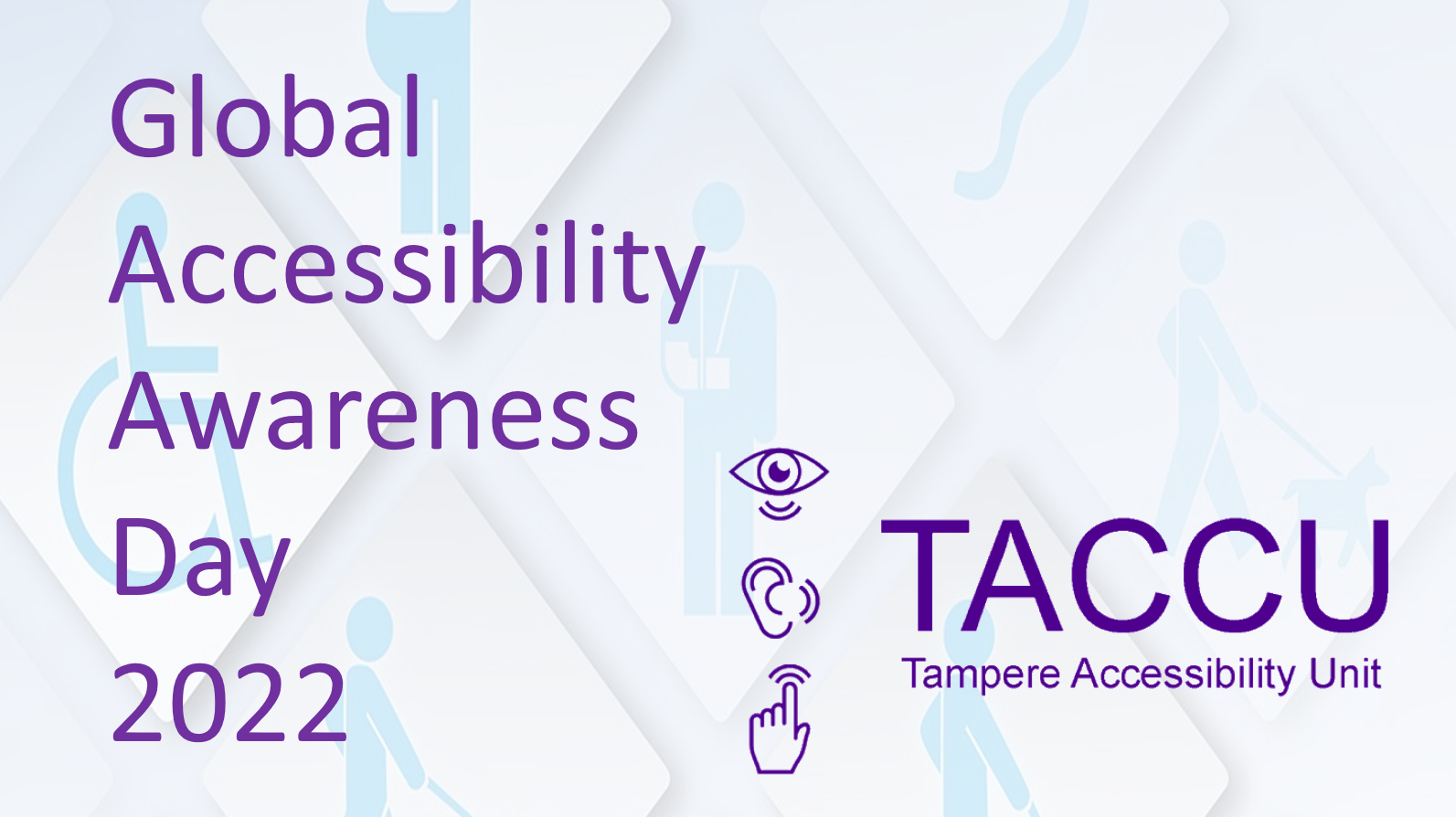Disabled persons’ digital inclusion
Funded by the @wihurinrahasto, I study the digital inclusion in our society among adults having a hearing impairment, physical disability, or visual impairment, and explore, among other things, the practical challenges and opportunities related to accessibility. Based on the questionnaire data collected from the target group, a situation picture is created, which brings concreteness to societal discussion and enables addressing the problems by decision-makers and service providers, for example.
The Finnish material was collected through an online questionnaire at the turn of the year 2021-2022 and there were a total of 282 respondents. The respondents were reached with the help of disability organizations: about 20 disability organizations or other actors advertised the questionnaire on their websites, in their newsletters, and on their social media channels. Without these collaborators, it would have been virtually impossible for an individual researcher to reach the target group comprehensively enough.
The questionnaire consisted of 65 questions divided into sections Background Information, Inclusion, Accessibility, Assistive Products, Use of Digital Devices and Services, and Final Feedback. Of these, it was possible to skip the sections related to assistive products and using digital devices and services. Preliminary summary-like results will be published (in Finnish) soon on the research questionnaire’s introductory page. However, the in-depth analysis of the data continues and the collection of comparative data from two countries – Sweden and the United States – is also ahead.
One of the most challenging phases of my research has been ensuring the accessibility of the questionnaire itself. For the questionnaire, I needed a survey system that would be appropriate in terms of data protection and that would make it possible to create an accessible questionnaire, meaning a questionnaire that would be smooth to complete also, for example, for screen reader users. Of course, the requirements of research related to the format of the response data, for example, needed to be taken into account as well. After a quite lengthy search, I first got acquainted with a survey system which was told to enable creating accessible questionnaires. I learned to use a screen reader and did numerous small test questionnaires. I was already ready to proceed with that survey system, until I luckily got the opportunity to get comments from a real screen reader user. It quickly became apparent that the questionnaire created with the system was not accessible after all: the operation was illogical and making choices required knowledge and key combinations that, according to my skilled tester, were unfamiliar to most screen reader users. While studying online, I had accidentally “over-educated” myself as a screen reader user. Once again, an excellent example why involving real end-users in any kind of research already in the planning or design phase is extremely important!
In the end, I was forced to use a survey system that allowed me to create a (sufficiently) accessible questionnaire, but which in its simplicity did not meet the needs of research and therefore caused unnecessary additional work. I think this example illustrates well how much work is still needed to have accessible services. Above all, it is a matter of not knowing and, unfortunately, of attitudes as well: it would not be technically difficult to implement survey systems that allow accessibility and take account research-related needs.
Postdoctoral researcher Tuuli Keskinen, Tampere University @tuulikeskinen @wihurinrahasto


Kommentit